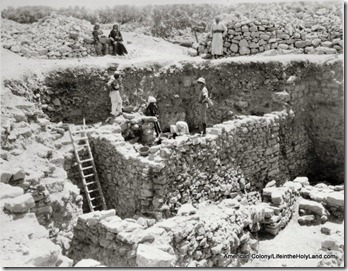While I’m traveling, I thought I might provoke readers with a statement written by William G. Dever in his article “Archaeology, Syro-Palestinian and Biblical,” published in 1992 in the Anchor Bible Dictionary, page 366.
Thus the book of Joshua and the works of the Deuteronomistic historians (Joshua-Kings) portray the emergence of Israel in Canaan as the result of a sudden, unified military conquest of the Twelve-Tribe League under the leadership of Joshua—a miraculous gift of Yahweh. Archaeological evidence, however, shows beyond doubt that most Late Bronze Age Canaanite sites in Palestine were not destroyed ca. 1200 B.C., and that nearly all the identifiable early Israelite settlements were established peacefully on virgin soil (Finkelstein AIS). Therefore, from the point of the secular historian, the ascendancy of Israel was part of a gradual, exceedingly complex process of socioeconomic change on the Late Bronze–Iron I horizon, not a “miracle” at all.
How many problems do you see with this statement? How does bad Bible reading lead him to faulty conclusions? What parts of his statement are true?
Source: The American Colony and Eric Matson Collection, volume 1
